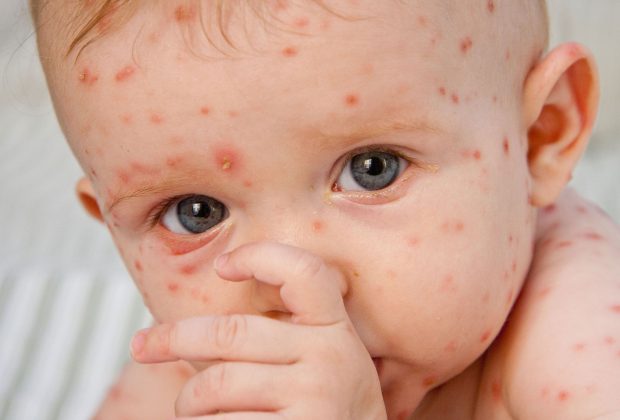Chickenpox Basic Information
There are two options for protecting children who are 12 months through 12 years old against measles, mumps, rubella (German measles) and varicella (chickenpox):
Getting two shots: the measles, mumps, and rubella (MMR) vaccine AND the varicella vaccine, or
Getting one shot: the measles, mumps, rubella, and varicella (MMRV) vaccine
Side Effects
A vaccine, like any medicine, is capable of causing serious problems, such as severe allergic reactions. The risk of chickenpox vaccine causing serious harm, or death, is extremely small.
Getting chickenpox vaccine is much safer than getting chickenpox disease. Most people who get chickenpox vaccine do not have any problems with it. Reactions are usually more likely after the first dose than after the second.
Mild Problems
Soreness or swelling where the shot was given (about 1 out of 5 children and up to 1 out of 3 adolescents and adults)
Fever (1 person out of 10, or less)
Mild rash, up to a month after vaccination (1 person out of 25). It is possible for these people to infect other members of their household, but this is extremely rare.
Note: The first dose of MMRV vaccine has been associated with rash and higher rates of fever than MMR and varicella vaccines given separately. Rash has been reported in about 1 person in 20 and fever in about 1 person in 5. Seizures caused by a fever are also reported more often after MMRV. These usually occur 5-12 days after the first dose.
Moderate Problems
Seizure (jerking or staring) caused by fever (very rare).
Severe Problems
Pneumonia (very rare)
Other serious problems, including severe brain reactions and low blood count, have been reported after chickenpox vaccination. These happen so rarely experts cannot tell whether they are caused by the vaccine or not. If they are, it is extremely rare.
Who Should Not Be Vaccinated
Some people should not get chickenpox vaccine or should wait.
People should not get chickenpox vaccine if they have ever had a life-threatening allergic reaction to a previous dose of chickenpox vaccine or to gelatin or the antibiotic neomycin.
People who are moderately or severely ill at the time the shot is scheduled should usually wait until they recover before getting the chickenpox vaccine.
Pregnant women should wait to get chickenpox vaccine until after they have given birth. Women should not get pregnant for 1 month after getting the chickenpox vaccine.
Some people should check with their doctor about whether they should get chickenpox vaccine, including anyone who:
- Has HIV/AIDS or another disease that affects the immune system
- Is being treated with drugs that affect the immune system, such as steroids, for 2 weeks or longer
- Has any kind of cancer
- Is getting cancer treatment with radiation or drugs
- People who recently had a transfusion or were given other blood products should ask their doctor when they may get the chickenpox vaccine.
Ask your provider for more information.

